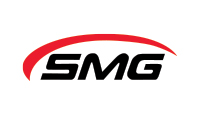We manage energy project development, environmental permitting, remediation and compliance, insustrial hygiene, health & safety, auditing, environmental management, government relations. We solve your problems in all of these areas. We move quickly and dig deeply to reach your goals. We work wherever you are.
How can SMG help you?
SMG POV
Kentucky Wastewater Lab Certification Program now in effect
WRITTEN BY
William Shane, P.E.TAGGED
The Division of Water’s wastewater laboratory certification program has been a long time coming, but it’s finally here! The program, which will standardize procedures for obtaining and analyzing KPDES wastewater compliance samples, became effective on September 5, 2013.
Any general or field-only wastewater lab that performs an analysis, measurement, or lab test for reporting on a KPDES Discharge Monitoring Report (DMR) will need to be certified. DOW will begin accepting applications for certification on September 7, 2013. Although the application deadline is October 1, 2014 for general labs and October 1, 2015 for field-only labs, DOW recommends that labs seeking certification submit an application as soon as possible. This will allow sufficient time to identify and correct application deficiencies and will help prevent a lapse in analysis capability.
Labs that require certification are already well aware of the program requirements. For permittees and facilities with KPDES permits that have their wastewater sampled and tested, there are a few things to know.
- Be aware of the certification status of your lab. Labs that apply on or past the application deadline may have a lapse in analysis capability. Also, lab certification can be downgraded or revoked by the Division of Water. If this happens, the lab should notify it clients and might not be able to perform KPDES compliance analyses.
- Labs that perform analyses for KPDES pretreatment programs do not need to be certified. However, the local utility may require the use of a certified lab. Industrial users should contact the local pretreatment coordinator for more information.
- Out of state labs can be certified, provided they submit the appropriate information to DOW. Equivalency certification can be awarded if a lab holds a current certification from a program with comparable requirements.
FEATURED PROJECT
PROBLEM
A local company engaged in manufacturing imported a small amount of a chemical substance defined under TSCA. Faced with a potential EPA enforcement action with penalties assessed for noncompliance under TSCA of up to $32,500 per day per violation, the company called SMG for help.
SMG'S APPROACH
SMG analyzed the company’s current TSCA procedures and assisted the company in developing a proactive, cost-effective compliance procedure. SMG also facilitated a training program to educate employees about TSCA.
MG worked with the company to develop mechanisms that assured adherence with the policies that were being implemented for compliance. Procedures to promptly correct any potential violations and prevent future violations were also put into place.
RESULTS
SMG was able to show that the company complied with the relevant TSCA regulations and was improving their TSCA policies and procedures to assure that future issues were less likely to occur. The company was not subjected to the proposed penalties and now has mechanisms in place to maintain TSCA compliance.
